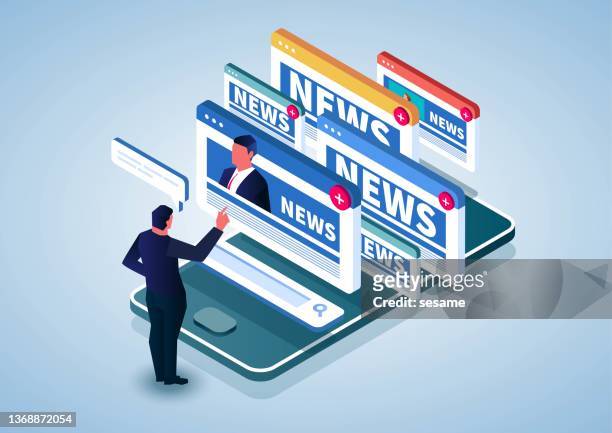The Relevance of Fact-Checking worldwide of News Online
The frequency of misinformation in today's on-line news landscape has gotten to startling levels. Fact-checking companies play an important function in combating this pattern. They verify cases and improve the credibility of journalism. The performance of these companies usually pivots on their approaches and public perception. As audiences browse this intricate setting, the ramifications of their findings might shape the future of news intake and depend on. What does this mean for the stability of information moving on?

The Rise of Misinformation in the Digital Age
Exactly how has the arrival of electronic modern technology added to the spread of misinformation? The rapid growth of the net and social networks platforms has helped with the dissemination of info at an unprecedented pace. Customers can share articles, videos, and point of views with a mere click, often without verifying the material's precision. Algorithms prioritize mind-blowing or psychologically billed product, bring about a proliferation of misleading stories that catch interest.
Furthermore, the anonymity paid for by digital systems allows people to spread out false details without liability (stnews.live). False information thrives in resemble chambers, where customers are subjected mainly to perspectives that reinforce their beliefs, additionally lodging fallacies. The saturation of info can overwhelm individuals, making it testing to determine legitimate sources from undependable ones. Subsequently, misinformation has come to be a pervasive issue in the electronic landscape, impacting popular opinion and depend on in legit news sources
The Duty of Fact-Checking Organizations
Fact-checking organizations play an essential role in enhancing the reliability of journalism by confirming insurance claims made in news records. Their efforts are vital in combating false information, making sure that precise information prevails in the digital landscape. By holding media electrical outlets liable, these companies contribute substantially to notified public discussion.
Enhancing Credibility in Journalism
While false information multiplies in the electronic age, fact-checking organizations play a necessary role in boosting the reliability of journalism. These companies thoroughly verify insurance claims made in news posts, public statements, and social networks articles, ensuring that info disseminated to the public is accurate and reliable. By giving independent analyses, they function as a vital source for reporters, helping them preserve high requirements of stability. Furthermore, their efforts advertise openness in media, promoting public trust. As audiences become significantly critical, the visibility of reputable fact-checking entities can differentiate trustworthy news sources from those that may spread frauds. Eventually, the commitment of fact-checking companies to maintain truthfulness is important for the health and wellness of democratic discourse.
Combating False Information Successfully
As misinformation remains to spread out rapidly throughout digital platforms, the function of fact-checking organizations becomes progressively essential in the fight for accurate info. These companies act as guard dogs, scrutinizing cases made by public numbers and media electrical outlets to assure accountability. By using rigorous research study techniques and specialist evaluation, they validate truths and clarify deceptive narratives. Their findings are distributed with numerous networks, educating the public and promoting essential thinking. In addition, collaborations with social media platforms enhance their reach, enabling timely flagging of false info. As digital proficiency expands, the influence of fact-checking companies is essential in empowering audiences to discern truth from fallacy, ultimately adding to a more educated culture.
Just How False Information Affects Public Assumption
False information significantly weakens depend on in media, leading audiences to doubt the credibility of news resources. Because of this, people commonly move towards outlets that reinforce their present beliefs, contributing to the polarization of opinions. This vibrant develops a fragmented information landscape, where shared comprehending ends up being increasingly difficult to attain.
Rely on Media

Rely on media has actually become increasingly delicate in the digital age, where the quick spread of incorrect info can skew public assumption. As misinformation proliferates across social media and on-line platforms, audiences often find it challenging to determine credible resources from unstable ones. This unpredictability promotes skepticism, leading many people to question the objectives behind news reporting. Count on in developed media outlets has actually reduced, as customers significantly turn to different resources that might lack extensive content standards. This disintegration of trust not only affects individual beliefs yet also weakens the collective ability to participate in educated conversations. Eventually, the honesty of journalism goes to risk, highlighting the important need for effective fact-checking to bring back self-confidence in the media landscape.

Polarization of Viewpoints
The enhancing apprehension towards traditional media has added to a growing polarization of opinions amongst the general public. Misinformation, commonly shared via social media and online platforms, plays a significant function in forming unique ideological splits. Individuals often look for info that aligns with their pre-existing beliefs, strengthening their point of views while dismissing opposing perspectives. This resemble chamber impact escalates departments, causing a fragmented public discourse where agreement becomes significantly evasive. Furthermore, sensationalized narratives grow in this environment, further skewing public assumption and promoting suspect in trustworthy sources. As polarization intensifies, the necessity for reliable fact-checking ends up being paramount to link spaces and promote notified discussions, ultimately making certain a more cohesive culture efficient in navigating intricate issues.
Techniques for Effective Fact-Checking
Effective fact-checking depends on an organized method that consists of extensive research, verification of sources, and crucial evaluation of claims. A foundational method is cross-referencing info discover here from numerous qualified resources to validate its accuracy. Fact-checkers typically use specialized data sources and archives to map the origin of particular statements, guaranteeing that the reported information lines up with recorded evidence.
Another essential approach entails scrutinizing the context in which cases exist. Misleading info can develop from out-of-context quotations or careful data usage. By examining the more comprehensive narrative, fact-checkers can recognize prospective biases or misinterpretations.
In addition, involving with specialists in pertinent fields can provide clearness and insight that improves the fact-checking procedure. This collaboration can discover nuances that laypeople may forget - stnews.live. Eventually, a disciplined method incorporating these methods promotes a much more enlightened public, improving check this the integrity of info disseminated in the electronic age
The Impact of Social Media on News Consumption
How has social networks transformed the means individuals take in news? The appearance of platforms like Facebook, Twitter, and Instagram has significantly modified news consumption patterns. News is now shared quickly, allowing individuals to gain access to real-time updates and engage with content with sort, shares, and comments. This immediacy has fostered a choice for bite-sized info, usually at the expenditure of comprehensive analysis.
Social media allows customized news feeds, where algorithms curate material based on user choices, developing resemble chambers that might restrict direct exposure to varied perspectives. The function of standard news outlets has decreased as people progressively count on peer referrals and trending topics. The reliability of details is often jeopardized, as sensationalism can overshadow factual coverage. Overall, social networks has actually improved news consumption, stressing rate and customization while challenging the standards of journalistic honesty.
Empowering Target Markets to Determine Reliable Sources

Furthermore, taking a look at the authorship and organizational history of newspaper article can reveal possible biases. Cross-referencing details throughout numerous reliable electrical outlets better improves the confirmation procedure. Utilizing electronic tools, such as browser expansions that rate the trustworthiness of websites, can also assist in recognizing credible information. By proactively engaging with these sources and growing an important state of mind, audiences can much better equip themselves to determine reputable news sources, inevitably promoting an extra enlightened culture in the you could check here middle of the intricacies of today's media setting.
The Future of Journalism and Fact-Checking
As the media landscape develops, the future of journalism and fact-checking encounters both challenges and opportunities. The increase of digital systems has equalized info dissemination, enabling varied voices to emerge. This has actually additionally led to the expansion of misinformation, necessitating robust fact-checking systems. Reporters will progressively rely upon technology, including AI devices, to validate facts quickly and efficiently.
Collaboration between news companies and fact-checking entities is expected to reinforce credibility and openness. In addition, audience engagement will certainly play an essential duty, as educated viewers come to be substantial partners in determining credible content.
The demand for responsibility and precision is most likely to expand, pressing reporters to promote high criteria in their reporting. Ultimately, the future of journalism might depend upon its ability to adjust to technological advancements while maintaining journalistic stability, making certain that fact-checking continues to be a keystone of reputable news.
Frequently Asked Inquiries
How Can I Report False Information I Come Across Online?
To report false information experienced online, individuals can utilize platform-specific reporting devices, supply clear evidence, and share the information with fact-checking companies. Involving with area conversations can additionally help increase recognition about the misinformation.
What Prevail Indicators of Misinformation in News Articles?
Common indicators of false information in newspaper article consist of astonishing headings, absence of legitimate sources, psychological language, irregular truths, and absence of author qualifications. Readers ought to seriously review material for these indicators to recognize precision.
How Do Fact-Checkers Validate Sources?
Fact-checkers validate sources by cross-referencing info with qualified databases, consulting specialists, and checking out the original context of cases. They also examine the reliability of the resources, guaranteeing exact and trustworthy info for public intake.
What Legal Activities Can Be Taken Versus Misinformation?
Lawsuits versus misinformation might consist of disparagement legal actions, cease-and-desist orders, and regulative charges. Victims can prosecute via civil courts, while some jurisdictions impose penalties or assents on platforms distributing incorrect details.
Are There Apps for Fact-Checking News On-The-Go?
Numerous apps exist for fact-checking news on-the-go, consisting of Snopes, FactCheck.org, and PolitiFact. These applications assist customers validate claims rapidly, promoting notified decision-making and cultivating a much more discerning technique to consuming news in real-time.